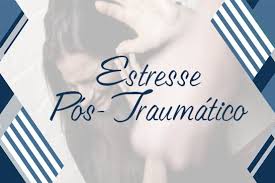The first instrument for complex PTSD assessment: psychometric properties of the ICD-11 Trauma Questionnaire
PDF em inglês: http://doi.org/10.1590/1516-4446-2018-0272
DOI:
https://doi.org/10.25118/2763-9037.2022.v12.465Keywords:
complex trauma, traumatic event, ICD-11, PTSDAbstract
Objective: The ICD-11 Trauma Questionnaire (ITQ) was developed as a joint effort by researchers from several countries to evaluate post-traumatic stress (PTSD) and complex-PTSD (C-PTSD) symptoms. This study is part of a multi-center international collaborative research project that aims to provide psychometric support for this initial instrument in different languages, considering the specific contexts related to complex traumatization. This study verified the psychometric characteristics of the Portuguese version of the ITQ, evaluating symptoms beyond those described the existing literature. Methods: We examined the results of a convenience sample totaling 268 Portuguese and Angolan participants. Two instruments were applied: the ITQ, which evaluates symptoms resulting from a traumatic life event, and the Life Events Checklist (LEC), which evaluates stressful life events. The general characteristics of the scales are described, and reliability analysis and validity studies were performed. Results: Cronbach’s alpha varied between 0.84 and 0.88, and the exploratory factorial analysis results were consistent with the concept of C-PTSD, with five components explaining 61.58% of scale variance. Conclusion: The results suggest good psychometric characteristics for the Portuguese version of the ITQ, and thus it can be included in protocols intended evaluating complex traumatic symptoms.
Downloads
Metrics
References
American Psychiatric Association. Diagnostic and Statistical Manual of Mental Disorders, Fourth Edition (DSM-IV). Arlington: American Psychiatric Publishing; 1994.
American Psychiatric Association. Diagnostic and Statistical Manual of Mental Disorders, Fifth Edition (DSM-5). Arlington: American Psychiatric Publishing; 2013. https://doi.org/10.1176/appi.books.9780890425596
Oliveira S. Traumas da guerra: traumatização secundária das famílias dos ex-combatentes da guerra colonial com PTSD [dissertation]. Lisboa: Universidade de Lisboa; 2008.
Herman JL. Complex PTSD: a syndrome in survivors of prolonged and repeated trauma. J Trauma Stress. 1992;5:377-91. https://doi.org/10.1002/jts.2490050305
Roth S, Newman E, Pelcovitz D, van der Kolk BA, Mandel FS. Complex PTSD in victims exposed to sexual and physical abuse: results from the DSM-IV field trial for posttraumatic stress disorder. J Trauma Stress. 1997;10:540-55. https://doi.org/10.1002/jts.2490100403
Violal TW, Schiavon BK, Renner AM, Grassi-Oliveira R. Trauma complexo e suas implicações diagnósticas. Rev Psiquiatr Rio Gd Sul. 2011;33:55-62. https://doi.org/10.1590/S0101-81082011000100010
Cloitre M, Garvert DW, Brewin CR, Bryant RA, Maercker A. Evidence for proposed ICD-11 PTSD and complex PTSD: a latent profile analysis. Eur J Psychotraumatol. 2013;4. https://doi.org/10.3402/ejpt.v4i0.20706 - PMid:23687563 PMCid:PMC3656217
Maercker A, Brewin CR, Bryant RA, Cloitre M, van Ommeren M, Jones LM, Humayan A, Kagee A, Llosa AE, Rousseau C, Somasundaram DJ, Souza R, Suzuki Y, Weissbecker I, Wessely SC, First MB, Reed GM. Diagnosis and classification of disorders specifically associated with stress: proposals for ICD-11. World Psychiatry. 2013;12:198-206. https://doi.org/10.1002/wps.20057 - PMid:24096776 - PMCid:PMC3799241
Gray MJ, Litz BT, Hsu JL, Lombardo TW. Psychometric properties of the life events checklist. Assessment. 2004;11:330-41. https://doi.org/10.1177/1073191104269954 - PMid:15486169
Pestana MH, Gageiro JN. Análise de dados para ciências sociais. A complementaridade do SPSS. 6ª. ed. revista, aumentada e atualizada. https://doi.org/10.13140/2.1.2491.7284

Downloads
Published
How to Cite
Issue
Section
License
Copyright (c) 2022 José Rocha, Verónica Rodrigues , Emanuel Santos , Inês Azevedo , Sónia Machado , Vera Almeida, Celina Silva , Jacqueline Almeida , Maryléne Cloitre

This work is licensed under a Creative Commons Attribution-NonCommercial 4.0 International License.
Debates em Psiquiatria allows the author (s) to keep their copyrights unrestricted. Allows the author (s) to retain their publication rights without restriction. Authors should ensure that the article is an original work without fabrication, fraud or plagiarism; does not infringe any copyright or right of ownership of any third party. Authors should also ensure that each one complies with the authorship requirements as recommended by the ICMJE and understand that if the article or part of it is flawed or fraudulent, each author shares responsibility.
Attribution-NonCommercial 4.0 International (CC BY-NC 4.0) - Debates em Psiquiatria is governed by the licencse CC-By-NC
You are free to:
- Share — copy and redistribute the material in any medium or format
- Adapt — remix, transform, and build upon the material
The licensor cannot revoke these freedoms as long as you follow the license terms. Under the following terms:
- Attribution — You must give appropriate credit, provide a link to the license, and indicate if changes were made. You may do so in any reasonable manner, but not in any way that suggests the licensor endorses you or your use.
- NonCommercial — You may not use the material for commercial purposes.
No additional restrictions — You may not apply legal terms or technological measures that legally restrict others from doing anything the license permits.





























